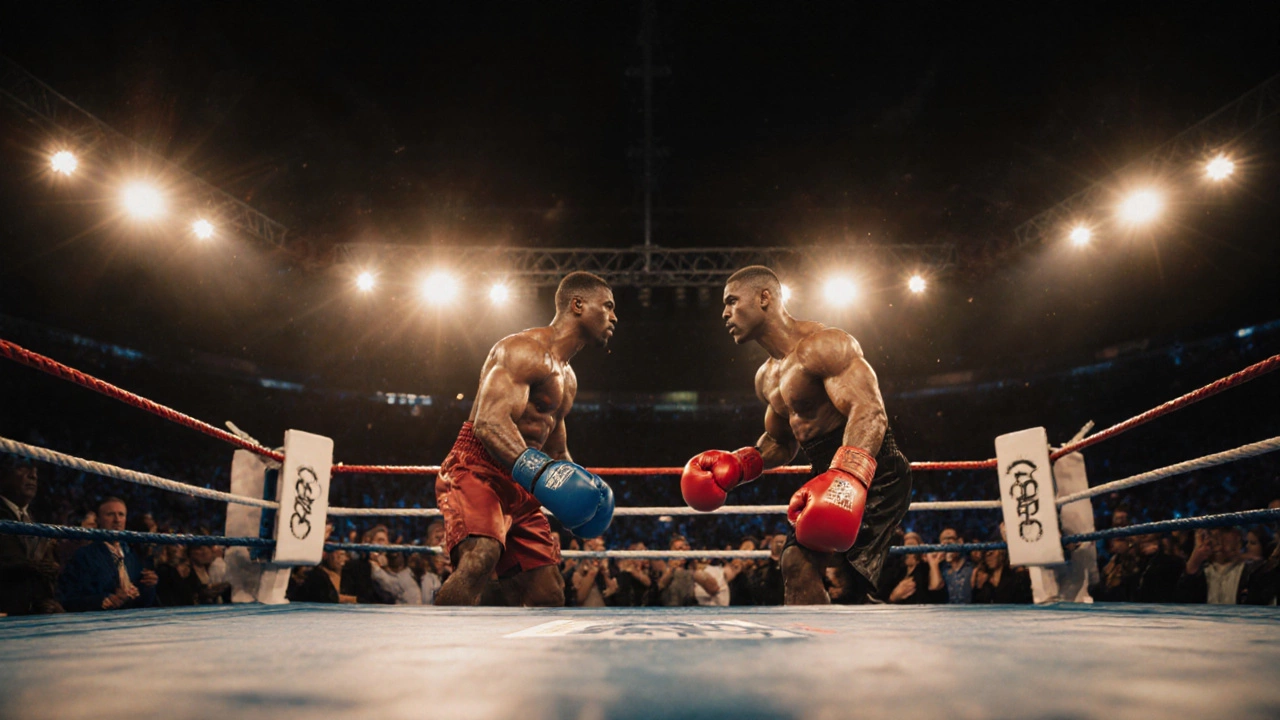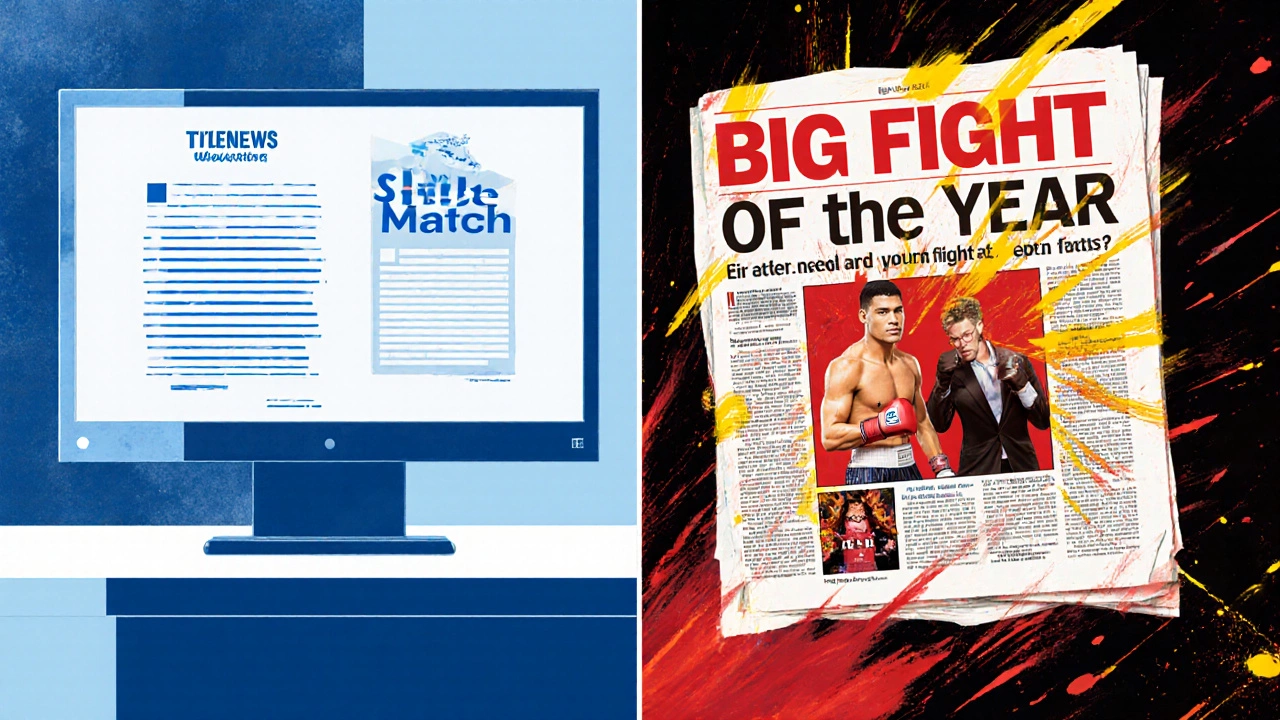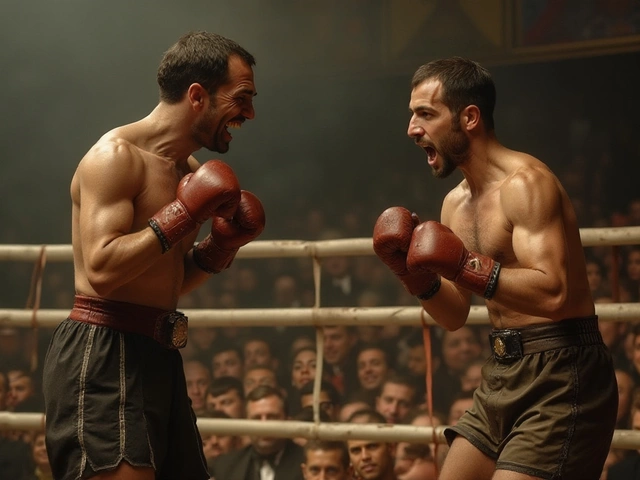Boxing match or fight: Which term should you use?

Boxing Terminology Checker
Select your context to get the right terminology
This tool helps you determine the appropriate term based on your specific situation. Select the options that best match your needs, then click 'Check Recommendation'.
When you hear the term boxing match, you probably picture two athletes trading punches under bright lights. But many fans and even some journalists slip between "match" and "fight" without thinking about the subtle differences. This article clears up the confusion, explains where each word comes from, and gives you a quick cheat‑sheet so you can sound like a seasoned commentator.
Key Takeaways
- "Boxing match" is the standard term for a scheduled, rule‑bound contest, especially in professional and amateur sanctioning bodies.
- "Boxing fight" is used informally to describe the same event, but it often emphasizes the aggressive, unpredictable nature of the bout.
- In broadcast and media writing, "match" appears in official press releases, while "fight" shows up in headlines and commentary.
- Regional preferences differ: UK outlets favour "fight" more than US publications, which stick to "match" for formal reporting.
- Use the table below to decide which word fits your audience and purpose.
Boxing match is a scheduled, regulated contest between two boxers that follows the rules set by a sanctioning body such as the World Boxing Council or the International Boxing Federation. The bout is divided into a predetermined number of Rounds, each lasting three minutes for men and two minutes for women in most professional settings. A match ends with a Knockout, a technical knockout, a decision by the judges, or a disqualification.
Boxing fight is the colloquial counterpart to "boxing match." While it refers to the same physical contest, the word "fight" carries a more visceral feel, often used by commentators to heighten drama. In promotional material, promoters might say, "The biggest fight of the year," even though the official paperwork will list it as a match.
Historical roots of the terms
The word Match entered the sporting lexicon in the 19th century, borrowed from the English verb "to match" meaning "to pair together for competition." Early boxing clubs in England recorded events as "matches" in ledger books, emphasizing the organized nature of the sport.
Conversely, "fight" derives from the Old English "feohtan," meaning "to strike, battle, or contend." Its usage grew alongside the rise of prizefighting in the United States, where promoters needed a punchy, marketable word for posters and newspaper ads. By the 1920s, newspapers regularly headlined "Big Fight Tonight" while the official fight cards listed a "match".
How governing bodies label events
Every major sanctioning organization-World Boxing Council (WBC), International Boxing Federation (IBF), and others-uses the term "match" in contracts, licensing forms, and ranking lists. For example, a WBC title fight is officially recorded as a "title Title bout." The word "bout" itself is a neutral synonym that avoids the match/fight debate entirely.

Professional vs. amateur usage
In Professional boxing, the term "match" dominates official documentation. Press releases from promoters, boxers' management teams, and sports journalists will write, "The upcoming match between Fighter A and Fighter B is scheduled for June 12." The reason is simple: contracts, insurance policies, and regulatory filings need precise terminology.
In Amateur boxing, especially in Olympic contexts, "bout" is the preferred word. However, the media covering the Olympics often switch to "fight" for headlines-"Gold‑medal fight at the Tokyo Games"-because it sounds more exciting to a general audience.
Regional preferences
In the United Kingdom and Ireland, newspapers and broadcasters frequently use "fight" in both formal and informal contexts. The BBC’s sports website describes a heavyweight showdown as a "fight," while the UK Boxing Board of Control still files it as a "match" in its paperwork.
In the United States, major outlets such as ESPN, The Ring, and Boxing News typically reserve "match" for the official record and use "fight" in narrative prose. A typical US article might read: "In a 12‑round match, Fighter X secured a unanimous decision," but the accompanying tweet could say, "What a fight!"
Style guide for writers and fans
- When writing a news report or creating a formal record, use "match" and, if needed, add the term "title Title bout" for championship events.
- When crafting a headline, social media post, or commentary where excitement is prized, feel free to swap in "fight." The key is consistency within a single piece.
- If you are quoting a promoter or a boxer, preserve their language. Fighters often say, "This is the biggest fight of my career," and that authenticity adds color.
- Avoid mixing the terms in the same paragraph unless you clarify the difference. For example, "The match was intense, and the fight quickly turned into a knockout showdown" can confuse readers.
- Remember that "bout" is a safe middle ground. If you’re unsure, use "bout" and let the surrounding context dictate the tone.

Common pitfalls and how to avoid them
- Calling a non‑sanctioned street scuffle a "boxing match"-only events overseen by a recognized body qualify.
- Using "fight" to describe a Round that was stopped due to injury; instead say "the match was stopped in round five."
- Mixing up "knockout" and "technical knockout"-a knockout ends when a boxer cannot rise before the count of ten, while a technical knockout is called by the referee due to safety concerns.
Quick comparison table
| Aspect | Boxing match | Boxing fight |
|---|---|---|
| Formality | High - appears in contracts, rankings, official records | Low to medium - used in headlines, commentary |
| Regional preference | US, Australia, Canada (formal media) | UK, Ireland, informal US media |
| Emotional tone | Neutral, factual | Exciting, dramatic |
| Typical pairing | "Title Title bout" or "scheduled match" | "Big fight", "main event fight" |
| Best for SEO | When targeting official statistics and record‑keeping queries | When aiming for trending or viral content |
Frequently Asked Questions
Is "boxing fight" wrong in a news article?
No, it’s not wrong, but it’s less formal. News agencies usually reserve "match" for the official record, while "fight" works fine in the narrative sections or social media posts.
Do amateur bouts follow the same naming rules?
Amateur events often use the word "bout" in official documents, but media coverage may still call them "fights" for excitement. The distinction is less strict than in the professional ranks.
What does "title bout" mean?
A "title bout" is a match where a championship belt is on the line. The term emphasizes the stakes without choosing between "match" or "fight."
Can I use "fight" when describing a knockout?
Yes. Saying "He scored a knockout in the fight" is acceptable, but if you want to be precise, you might write "He scored a knockout in the match during round three."
Why do UK outlets prefer "fight"?
British sports culture historically used "fight" in the popular press, and that habit stayed even after the sport became heavily regulated. It’s a legacy of the language used by early 20th‑century promoters.
Now you know the subtle dance between "boxing match" and "boxing fight." Use the right word for the right setting, and you’ll sound like you’ve been covering the sweet science for decades.




